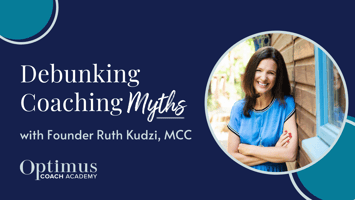Often coaching is seen as a solely cognitive process which can feel transactional: the coach helps...
Integrating Positive Psychology & Coaching
Positive Psychology is no longer seen as a new domain: in fact it's nearly 30 years (1998) since Martin Seligman coined the term as he became the new president of the APA (American Psychological Association). Over the last 30 years research into Positive Psychology and it's popularity have grown alongside the growth in coaching.
It's no surprise that the two different approaches can be integrated and support one another.
The simplistic view is that Positive Psychology switches the traditional view in Psychology of focusing on a deficit model or what is wrong and instead looking at building on what is working or nurturing what is strong. This lens leans into a strengths based approach to coaching which has been evidenced to support personal and professional growth. It's no real surprise when people are playing to their strengths they perform more effectively.
Strengths based approaches
At Optimus this forms part of our internal team conversations where we look at what we do in our roles and support people to have a diet where they play to their strengths for the majority of the time.
Whether you're coaching in the workplace or working with individuals having a strengths based approach has been shown to improve confidence in your coachees and is one of the preferred ways of working with neurodivergent individuals.
The challenge to using strengths as a coach is what if a client has been sent to coaching by their organisation / sponsor as they are looking to "correct" or change a behaviour. This type of coaching assignment does happen and it's an interesting perspective. When you're working with clients in this space starting with strengths can help them to build that confidence and you can support people to use their strengths to change in a way that works for them rather than always focusing on what needs to be corrected. It can equally be useful to explore perceptions and norms here as sometimes behaviours are judged based on a limited understanding of individual differences and preferences...
Does a positive psychology approach mean that everything needs to be positive?
One of the things I see often online is a confusion between positive psychology and toxic positivity. It's clear that if we have a higher % of positive emotions we're going to be closer to thriving (as referenced by Martin Seligman's PERMA model). This doesn't mean we have them in the absence of other emotions, for most people the balance is skewed to negative affect so changing this balance to a more positive frame has benefits including supporting cognition and decision making.
Whilst the role of a coach is to support clients to move towards a solution and to not spend too much time in "problem-based" thinking a skilled coach knows that trust and safety is at the heart of coaching. If a client is coming with a distressing situation or circumstance it's not about quickly moving that client on to look at the positive it's about hearing and validating how they're feeling first : otherwise it will sound like you are pollyanna!
Equally, whilst we know a positive frame allows the brain to use more of it's cognitive capacity which facilitates improved decision making and problem solving there are some situations where exploring worst case scenarios can be beneficial to clients. One of the big things we teach is about being aware of how our clients are responding and listening / noticing when we are eliciting a threat response with our questioning.
Using tools / models
When we get into Psychology we can be met with tools, models and scales which can work really well for some clients and can equally make others feel they are being labelled and not be useful. When you understand core concepts in Positive Psychology you don't need to be using the scale with clients, instead you can be noticing links to core concepts or integrating approaches to evoke awareness. I invite the coaches I work with to consider how will this be helpful to my clients rather than having to go through a set way of doing things.
What is the best way?
For me the best way to integrate the approaches is dependent on your own personal style and how you want to work with clients. Knowing that cognitively clients are going to get more out of their sessions if they are in positive affect can help you to consider how you start sessions and support clients when they are coming in different states. Equally, having tools which can help clients to look at themselves in a more favourable way is always a win especially as we're often conditioned to focus on our weaknesses rather than celebrate our strengths. I love the range of opportunities positive psychology and coaching open up to create new insights and help clients find novel solutions seeing opportunities to manage challenges.
How do you integrate the two?



